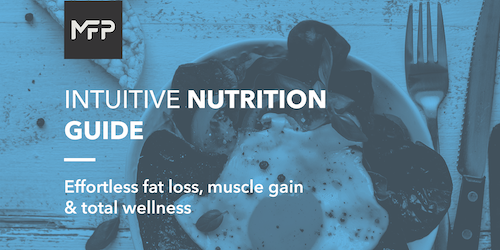I absolutely love steak. I could straight up eat it every day. You too? But. Red meat is regularly associated with increased risk of cardiovascular disease, cancer, and diabetes. Makes ya think: Is daily steak too much? If so, how much red meat is “too much”? Is this all just vegan propaganda? First, we need to talk about…
Processed Vs. Unprocessed Meats. Processed meat is meat that has been preserved by curing, smoking, drying, or canning. Sausage, salami, bacon, hot dogs, deli meat, etc. Unprocessed red meat is any meat that is red when raw, that hasn’t been through the preservative process. Beef, lamb, pork, etc.
Knowing the difference is important, as there seems to be a clear difference in the health effects of processed vs. unprocessed red meats. Most studies seem to agree: Consistently eating processed meats is a health risk. However, when it comes to unprocessed red meat, the lines are blurry, at best.
Exhibit A: This review of 20 studies covering 1.2 million individuals. Link: https://www.ncbi.nlm.nih.gov/pubmed/20479151
Conclusion: Processed meat is associated with an increased risk of heart disease and diabetes. No association for unprocessed red meat.
Exhibit B: A very large study of nearly 500,000 participants. Link: https://www.ncbi.nlm.nih.gov/pubmed/23497300
Conclusion: Again, processed meat was associated with higher risk of death. No association for unprocessed red meat. So processed meat appears to pose a health risk. But again, unprocessed red meat is iffy. So, let’s look at a study that does claim correlation between red meat and cancer.
“Association of Animal and Plant Protein Intake With All-Cause and Cause-Specific Mortality” This is a massive study (131,342 participants) published in 2016. (Study link: https://www.ncbi.nlm.nih.gov/pubmed/27479196)
It concluded that high animal protein intake is associated with a higher mortality rate and a higher cancer mortality rate. But, the pattern of meat consumption and increased cancer risk was only true for participants who had at least one other factor associated with an unhealthy lifestyle (obesity, smoking, sedentary lifestyle, etc.) Participants without any unhealthy lifestyle factors didn’t have a higher mortality or cancer mortality rate.
All that being said, we could easily debate dozens of studies that claim unprocessed red meat is a significant health risk. The jury is still out, to say the least. But as of now, no studies make a strong case for unprocessed red meat causing disease by itself.
Basically:
- Avoid processed red meats
- Avoid other unhealthy lifestyle factors (obesity, smoking, sedentary lifestyle, etc.)
- Red meat in moderation is likely the best approach (every day is probably a bit excessive). For optimal health: a diverse diet (including diverse protein sources, not just red meat) composed of primarily whole foods will yield the best results.
- When replacing red meat in your diet, be careful what you’re replacing it with. If you’re swapping the steak for a highly-processed, nutrient void food, you’re not improving your health.






